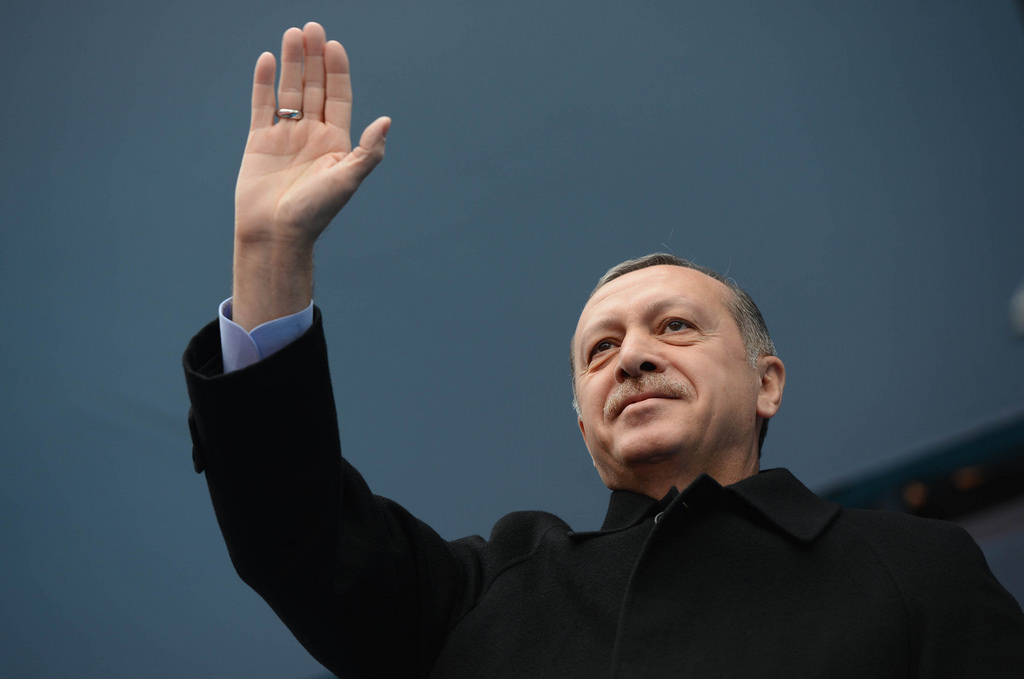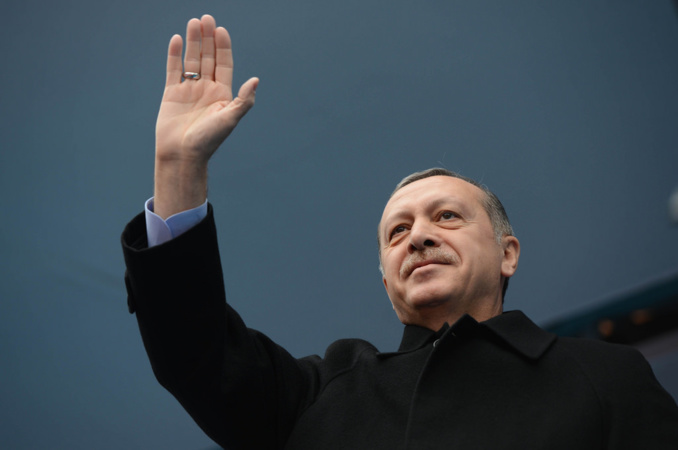Annual GDP in the fourth quarter of 2018 decreased by 2.4% compared with the third quarter, when, by the way, it also declined, but by 1.6%. Compared with the last quarter of 2017, the decline in Turkish GDP was 3%.
Recep Tayyip Erdogan demands economic growth at any cost. In this regard, the government puts pressure on the Central Bank, which is required to maintain low key rates. In recent years, capital has poured into Turkey. This made it possible to raise the growth rate of the economy above 7%, starting from the end of 2009. However, without a solid foundation, this rapid economic growth was instantly blown away after the local currency devaluated.
“This is a condemnation of ‘Erdonomics’ and a direct consequence of the monetary policy of 2018, which was carried out in favor of short-term political objectives, and not out of considerations of economic pragmatism,” explains Julian Rimmer, a broker at London Investec Bank.
Investors are now worried that the process of economic recovery in Turkey will be delayed for a long time. At least, the circumstances - flight of foreign capital and payment of debts by households and companies - are clearly not in favor of a quick recovery. Consumer spending in October-December last year fell at an annualized rate of 8.9%, while Turkey's GDP per capita fell from 10 thousand dollars in 2017 in 2017 to 9632 dollars last year.
Despite the sad statistics, the Minister of Finance of Turkey Berat Albayrak said that all was not so bad. The bottom, in his opinion, has already been reached, and the Turkish economy will recover quickly. The key drivers of economic growth will be tourism and exports, who have greatly added in recent months, the chief Turkish financier said.
After the statistics for the fourth quarter 2018 was revealed, the lira fell by 0.5%. In total, since the beginning of the year, the Turkish currency has depreciated against the dollar by almost 3%. This is the third most recent result among emerging market currencies this year.
This statistics appeared at a critical time for President Erdogan. On the last day of March, he will have to pass the first serious test after a sharp expansion of powers last year. After these elections, the Turks will be able to rest from electoral fever as there will be no elections for four years in the country.
Now the Turkish economy is reaping the benefits of very high government spending and rapid credit growth, which led to a sharp increase in imports and an increase in the current account deficit.
The volume of loans issued in the last three months decreased by 7.2%. The government requires banks to increase lending in order to boost the economy. The authorities recapitalized three of the four largest credit banks by selling government bonds to the Unemployment Fund. Now the Ministry of Finance is developing a plan for the recapitalization of state banks.
“Unlike previous V-shaped restorations, there is now a big risk that recovery will be much slower,” predicts Inan Demir, economist at Nomura International.
source: bloomberg.com
Recep Tayyip Erdogan demands economic growth at any cost. In this regard, the government puts pressure on the Central Bank, which is required to maintain low key rates. In recent years, capital has poured into Turkey. This made it possible to raise the growth rate of the economy above 7%, starting from the end of 2009. However, without a solid foundation, this rapid economic growth was instantly blown away after the local currency devaluated.
“This is a condemnation of ‘Erdonomics’ and a direct consequence of the monetary policy of 2018, which was carried out in favor of short-term political objectives, and not out of considerations of economic pragmatism,” explains Julian Rimmer, a broker at London Investec Bank.
Investors are now worried that the process of economic recovery in Turkey will be delayed for a long time. At least, the circumstances - flight of foreign capital and payment of debts by households and companies - are clearly not in favor of a quick recovery. Consumer spending in October-December last year fell at an annualized rate of 8.9%, while Turkey's GDP per capita fell from 10 thousand dollars in 2017 in 2017 to 9632 dollars last year.
Despite the sad statistics, the Minister of Finance of Turkey Berat Albayrak said that all was not so bad. The bottom, in his opinion, has already been reached, and the Turkish economy will recover quickly. The key drivers of economic growth will be tourism and exports, who have greatly added in recent months, the chief Turkish financier said.
After the statistics for the fourth quarter 2018 was revealed, the lira fell by 0.5%. In total, since the beginning of the year, the Turkish currency has depreciated against the dollar by almost 3%. This is the third most recent result among emerging market currencies this year.
This statistics appeared at a critical time for President Erdogan. On the last day of March, he will have to pass the first serious test after a sharp expansion of powers last year. After these elections, the Turks will be able to rest from electoral fever as there will be no elections for four years in the country.
Now the Turkish economy is reaping the benefits of very high government spending and rapid credit growth, which led to a sharp increase in imports and an increase in the current account deficit.
The volume of loans issued in the last three months decreased by 7.2%. The government requires banks to increase lending in order to boost the economy. The authorities recapitalized three of the four largest credit banks by selling government bonds to the Unemployment Fund. Now the Ministry of Finance is developing a plan for the recapitalization of state banks.
“Unlike previous V-shaped restorations, there is now a big risk that recovery will be much slower,” predicts Inan Demir, economist at Nomura International.
source: bloomberg.com



















